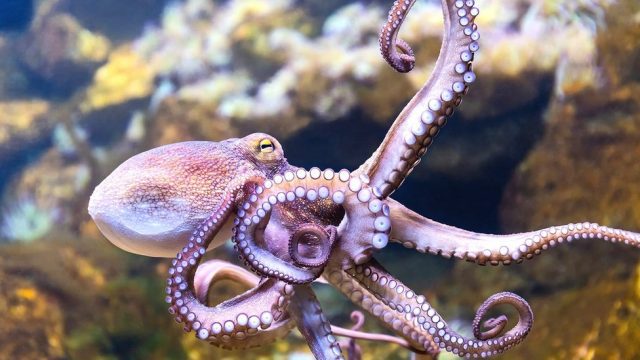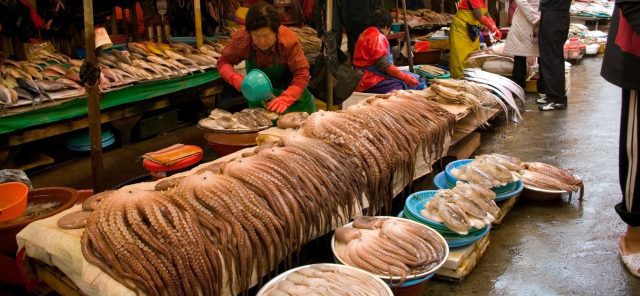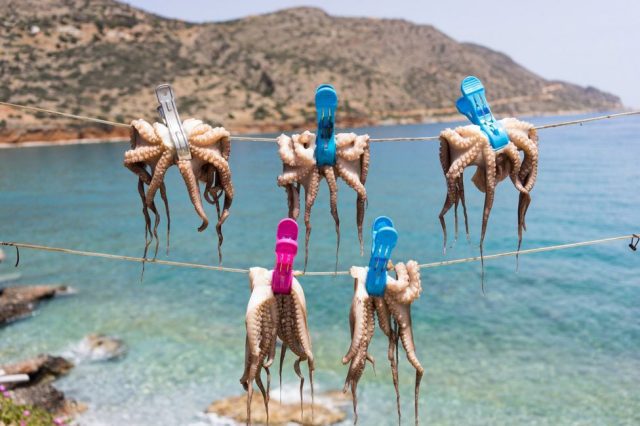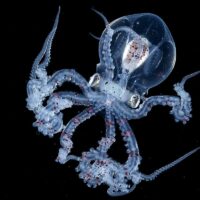News that the world’s first commercial octopus farm is closer to becoming reality has been met with dismay by scientists and conservationists. They argue such intelligent “sentient” creatures – considered able to feel pain and emotions – should never be commercially reared for food.
Playing with a Giant Pacific Octopus is part of Stacey Tonkin’s job. When she lifts the lid on the tank to feed the creature known as DJ – short for Davy Jones – he often scoots out from his cave to see her and stick his arms on the glass. That’s if he’s in a good mood. Octopuses live to be about four – so, at one year old, she says that he’s the equivalent of a teenager.
“He definitely exhibits what you’d expect a teenager to be like – some days he’s really grumpy and sleeps all day. Then other days he’s really playful and active and wants to charge around his tank and show off.”
According to the scuba-diving philosopher of science Peter Godfrey-Smith, the octopus is ‘the closest we will come to meeting an intelligent alien’. In his book Other Minds, he describes them as ‘an island of mental complexity in the sea of invertebrate animals’. The brain of a common octopus has 500 million neurons, making it as smart as a dog or a three-year-old child.
Few of us will have had the chance to observe them in the wild but many would have watched the now famous, Netflix film ‘My Octopus Teacher’. This Academy award winning film documents a year spent by filmmaker Craig Foster forging a relationship with a wild common octopus in a South African kelp forest. It has captured hearts worldwide. “I think people around the world are yearning to have some kind of real connection with the natural world, and this film speaks to that need,” Foster said.
Despite that emotional portrayal of the unique bond between a human and an intelligent sea creature, demand for octopus as a food source and in some cases a delicacy, has never been greater. Wild-caught octopuses are consumed all over the world, especially in several Mediterranean countries in Europe, as well as in Asia and Mexico. Italy consumes the most octopus, at over 60,000 tonnes per year, but there has recently been high demand in other countries, including the United States and Japan. Overfishing, combined with this growing demand, is driving prices up, leading to burgeoning interest in the farming of octopus, notably in Spain.
In the rush to farm these ‘intelligent aliens’, as Godfrey-Smith describes them, fears grow that both their welfare and the likely impact on the marine environment is being overlooked.
Given all we know about the intelligence of octopuses, and the fact they are not essential for food security, should an intelligent, complex creature start to be mass-produced for food?
- Photographer Captures A Rare Octopus With Transparent Head
- Octopus Vessel Sink by Shayne Greco
- Japanese Company Creates Sea Creature Teabags That “Come Alive” Inside Your Cup




















